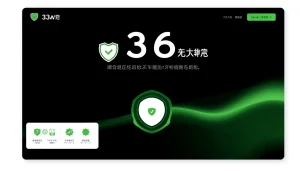Effective Strategies for Dealing with Anxiety: Practical Tips for Everyday Life
Understanding Anxiety: What It Is and Why It Matters
Anxiety is a common mental health condition that impacts millions of people worldwide. It’s more than just feeling stressed or worried; anxiety can manifest in physical and emotional symptoms that interfere with daily life. Learning effective strategies for dealing with anxiety is crucial, not only for improving your mental well-being but also for enhancing your overall quality of life. This comprehensive guide aims to provide you with insights into understanding anxiety, effective coping mechanisms, resources available for support, and practical steps to build resilience against future challenges.
The Nature of Anxiety and Its Common Triggers
Anxiety is part of the body’s natural response to stress, often described as the “fight or flight” response. When confronted with perceived danger, the body reacts by releasing stress hormones, which can cause physical symptoms such as increased heart rate, rapid breathing, and heightened alertness. These reactions are perfectly normal; however, when anxiety becomes chronic or disproportionate to the actual situation at hand, it may evolve into an anxiety disorder.
Common triggers for anxiety can vary widely from person to person but often include factors such as:
- High-stress situations (e.g., job interviews, public speaking, financial pressures)
- Significant life changes (e.g., moving, divorce, retirement)
- Health-related issues (e.g., chronic illness, recent injury)
- Traumatic experiences (e.g., accidents, abuse, loss of a loved one)
Understanding these triggers is essential for developing effective coping methods and reducing anxiety in your life.
Recognizing the Signs and Symptoms of Anxiety
Anxiety can present itself in various forms and can be both psychological and physical. Recognizing the signs and symptoms can help individuals determine when they need to seek support or implement coping strategies. Here are some common indicators of anxiety:
- Excessive worrying about different aspects of life
- Feeling restless or on edge
- Difficulty concentrating or mind going blank
- Physical symptoms such as fatigue, muscle tension, or headaches
- Sleep disturbances, such as insomnia or restless sleep
- Changes in appetite or weight
- Avoidance of situations that trigger anxiety
Being aware of these symptoms can empower individuals to take proactive steps in managing their anxiety.
The Importance of Addressing Anxiety Early
Addressing anxiety at its onset is crucial. If left unaddressed, it can worsen, leading to more severe mental health issues or physical health complications. Early intervention can help mitigate the impacts of anxiety, leading to a better prognosis and improved outcomes. Proactive steps may include seeking therapy, practicing coping methods, and engaging with supportive communities.
Proven Techniques for Dealing with Anxiety
Establishing a Relaxation Routine: Breathing and Mindfulness
One of the most effective ways to combat anxiety is through breathing techniques and mindfulness practices. These techniques can help individuals regulate their stress response and cultivate a sense of calm.
Some strategies include:
- Deep Breathing: Focus on your breath, inhaling deeply through your nose, holding for a few seconds, then exhaling through your mouth. This helps to activate the body’s relaxation response.
- Progressive Muscle Relaxation: Tense and then relax each muscle group sequentially to relieve physical tension and promote relaxation.
- Mindfulness Meditation: Engage in mindfulness practices that require you to focus entirely on the present moment, which can reduce feelings of anxiety and improve mood.
Establishing a regular relaxation routine not only helps to reduce anxiety but also builds resilience, making it easier to cope with future stressors.
Incorporating Regular Exercise into Your Life
Exercise is a powerful tool for managing anxiety. Physical activity releases endorphins, which are known to enhance mood and reduce feelings of stress. Just 30 minutes of moderate exercise nearly every day can help significantly decrease anxiety levels. Some effective forms of exercise include:
- Walking or jogging
- Yoga and stretching
- Cycling or swimming
- Group sports or fitness classes
Incorporating exercise into your routine can also create a positive feedback loop: as individuals exercise regularly, their anxiety diminishes, and increased self-esteem fosters further participation.
Using Journaling to Track Your Feelings and Thoughts
Journaling is an effective therapeutic tool for many facing anxiety. Writing down your thoughts and feelings provides an opportunity for self-reflection and can help individuals identify patterns in their anxiety. Practicing journaling may involve:
- Daily Reflection: Spend a few minutes each day noting down what made you anxious and how you coped with those feelings.
- Gratitude Journaling: Write down things you are thankful for to shift your focus away from anxiety-provoking thoughts.
- Brain Dumps: Allow yourself to freely write down whatever comes to mind without worrying about structure or grammar. This can reduce the swirling thoughts that often accompany anxiety.
Ultimately, journaling can serve as a safe space to express feelings and track progress, offering clarity and relief.
Seeking Professional Help: When and How
Types of Therapies: CBT and Beyond
Recognizing when to seek professional help is essential for those struggling with anxiety. Psychotherapy, particularly Cognitive Behavioral Therapy (CBT), has proven exceptionally effective in treating anxiety disorders. CBT focuses on identifying and changing negative thought patterns and behaviors related to anxiety. Other therapeutic approaches may include:
- Exposure Therapy: Gradually exposing individuals to anxiety-inducing stimuli in a controlled environment.
- Mindfulness-Based Stress Reduction: Utilizes mindfulness techniques to lower stress and anxiety levels.
- Dialectical Behavior Therapy: Combines cognitive-behavioral techniques with mindfulness principles.
Finding the right therapist is crucial and may take time, but skilled professionals can provide valuable tools for managing anxiety effectively.
Understanding Medication Options for Anxiety Management
For some individuals, medication may be necessary as part of a comprehensive anxiety management plan. A mental health professional can evaluate the benefits of medication, which may include:
- Antidepressants (SSRIs and SNRIs) that can alleviate symptoms of anxiety and depression.
- Benzodiazepines that provide quick relief for acute anxiety (often used on a limited basis due to dependency concerns).
- Beta-blockers that counteract physical symptoms such as rapid heart rate and tremors.
It’s essential to consult with healthcare professionals to evaluate the best course of action tailored to individual needs.
Finding the Right Mental Health Professional
Finding a mental health professional who understands your unique situation and anxiety profile is crucial. Begin by considering:
- Referrals from your primary care physician or trusted friends and family
- Online resources and directories that provide information on therapists in your area
- Initial consultations to determine compatibility and approach
Building a trusting relationship with your mental health provider can significantly enhance the effectiveness of your treatment plan.
Building Long-Term Resilience Against Anxiety
Developing Healthy Coping Mechanisms
Building resilience involves cultivating healthy coping mechanisms that enable individuals to handle life’s challenges. Incorporating stress management techniques into your daily routine can help, including:
- Setting aside “worry time” to reflect and assess challenges without letting it interfere with day-to-day activities.
- Practicing self-compassion and patience, acknowledging that setbacks are part of the journey.
- Engaging in hobbies or activities that promote relaxation and happiness.
By embedding these practices into daily life, individuals can strengthen their resolve and lower anxiety levels over time.
Creating a Supportive Environment with Friends and Family
A supportive network is vital for those dealing with anxiety. Building relationships with friends and family who understand your experiences can provide the encouragement and comfort you need. Some ways to foster this support include:
- Openly discussing your feelings with trusted individuals to alleviate stigma and silence.
- Encouraging loved ones to learn more about anxiety and its effects for better understanding.
- Engaging in stress-relieving activities together, such as exercise or mindfulness practices.
A strong support system can act as a buffer against anxiety and foster a sense of community and belonging.
Implementing Lifestyle Changes for Better Mental Health
Lifestyle habits can profoundly impact mental health. Minor adjustments in daily routines can lead to significant improvements in anxiety management. Consider the following strategies:
- Dietary Adjustments: Eating a well-balanced diet can improve overall health and reduce anxiety symptoms. Focus on whole foods, including fruits, vegetables, whole grains, and lean proteins.
- Sufficient Sleep: Ensuring adequate rest can directly influence mental health. Establishing a calming bedtime routine and a consistent sleep schedule can lead to better sleep quality.
- Limiting Alcohol and Caffeine: High consumption can exacerbate anxiety symptoms; reducing these substances can lead to significant improvement.
Implementing these lifestyle changes can foster an environment conducive to mental wellness, thereby reducing anxiety.
Resources and Tools for Managing Anxiety
Books and Apps for Self-Help and Support
Numerous self-help resources are available for those managing anxiety. Books and mobile applications focused on mental health can offer insights, coping strategies, and additional support:
- Books: Titles such as “The Anxiety and Phobia Workbook” by Edmund J. Bourne and “Feeling Good: The New Mood Therapy” by David D. Burns provide in-depth knowledge about managing anxiety.
- Apps: Platforms like Headspace, Calm, and Moodfit offer guided meditations, mood tracking, and personalized anxiety management tools.
Utilizing these resources can offer valuable tools and strategies that reinforce prior learning and support self-management of anxiety.
Online Communities and Support Groups
Joining online communities or support groups can also help individuals feel less isolated in their anxiety journey. Platforms such as:
- Reddit’s Anxiety Support Group
- Facebook groups focused on mental health
- Mental Health America’s support services
These forums can provide a sense of camaraderie, shared experiences, and valuable advice from individuals facing similar challenges.
Continuous Learning: Workshops and Courses on Mental Health
Continual learning about anxiety and mental health can empower individuals. Workshops and courses that focus on mental health awareness, stress management, and anxiety can equip individuals with new skills and strategies. Many educational institutions and community organizations offer these opportunities!
Understanding anxiety is the first step towards managing it. By implementing proven techniques, seeking professional help, and building resilience, individuals can learn to cope with their feelings more effectively. Remember, the journey toward better mental health is ongoing and requires patience, self-compassion, and commitment. Utilize the resources at your disposal, engage with your support systems, and embark on a journey towards improved well-being.














Post Comment